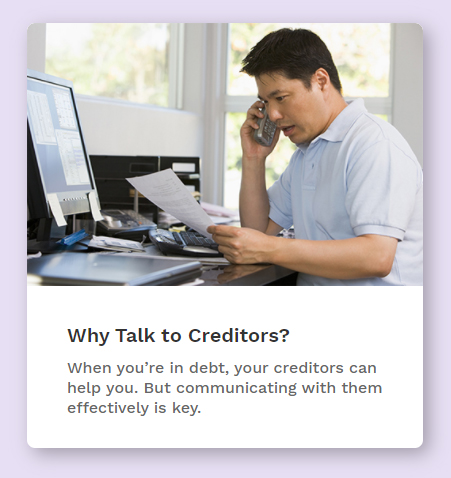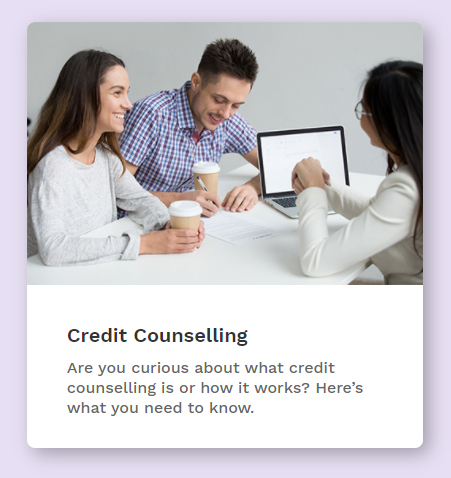Why Get a Student Loan, Are They Good or Bad and How to Overcome Repayment Problems
by Kevin Jones
There are many reasons why getting a student loan might be a good idea and many reasons why it might be a bad choice. Having the financial support of a student loan means you won’t have to worry as much about your tuition and living costs during your post-secondary studies. However, if you take on too much debt while getting your education, you’re just giving your money worries to your future self to deal with. The goal is for that future self to be much better equipped to tackle that debt with a degree, training, and of course, a well-paying job. But those who avoid student debt can also get a big head start on building the financial future they want without having to deal with possible repayment problems. Make sure you understand the pros and cons of getting a student loan before making a choice that could affect your life for years to come.
You are reading part 2 / 4 in this student debt mini-series:
- Avoid Student Debt, Loan Purpose, Advice, Alternatives and What to Do if You Can’t Pay It Back 1 / 4
- Why Get a Student Loan, Are They Good or Bad and How to Overcome Repayment Problems 2 / 4 – You Are Here
- Student Loan Debt – How Your Life Can be Affected and How to Solve Repayment Issues 3 / 4
- How to Prevent Student Loan Debt and Pay It Off 4 / 4
Reasons Why Student Loans Are Good or Bad
You don’t need to read dozens of essay length articles to learn the reasons why student loans are good and the reasons why education loans are bad. The good can simply be summed up as being able to focus more on your studies. If a hardworking undergraduate has to pick between attending a class and taking an extra work shift so they can pay their rent, then ditching school starts sounding like a necessity rather than a sin. Student loans help you avoid needing to make choices like these. Time that would be spent working to make ends meet can instead be used to improve your academic performance, volunteer for activities that benefit your career, and take care of your health – both physically and mentally.
The big downside to getting a student loan is similar to that of all debt. There’s always a cost to borrowing, and chances are you’ll end up paying a lot more than you got. Student loans are special in that they can be interest-free during your studies and for a short period afterwards. However, unlike running up a credit card balance with a maximum limit of a few thousand dollars, a student loan can easily go into the tens of thousands. Most people aren’t able to pay off that much debt within the interest-free period. This leaves them with massive payments each month that can grind a long-awaited life after graduation to a halt.
Government Student Loans vs. Private Student Lines of Credit
So you know about government student loans, but do you know about private student lines of credit (LoC)? The former is provided by Canada’s provincial and federal governments, who make the debt interest-free while you’re studying; depending on your province, your provincial loan might remain interest-free for 6 months after you graduate, or interest might not accrue at all. Interest you do end up paying can be claimed as a tax credit, and having a government student loan may also help you qualify for additional subsidies or relief programs such as the Repayment Assistance Plan. However, the eligibility requirements for a government student loan can be tough to meet. For example, you might be disqualified if your parents have high income – even if your parents refuse to help pay for your education. It’s also important to note that if you’re forced into a worse-case scenario financially, a government student loan cannot normally be included in bankruptcy or a consumer proposal if you’ve been out of school for less than 7 years.
While a bank or credit union can also offer you a private student loan, they tend more towards offering students lines of credit – think a credit card with a limit in the tens of thousands that might offer interest-free periods similar to a government student loan. As with borrowing any money from any financial institution, you must research the specific conditions of the LoC you’re interested in. That said, student credit lines are an alternative option when you don’t qualify for government loans, might have better interest rates, and can be included in bankruptcy or a consumer proposal regardless of your time out of school. However, you won’t have access to any additional subsidies or relief programs that are for government student loan holders. If you could get either of these options, then government loans are the safer bet to fund your education.
How to Overcome Student Loan Repayment Problems
When repayment problems are an unfortunate reality for many Canadian graduates, are you wondering “How can I overcome student loan debt”? The answer is to carry as little of this debt as possible. Pursue opportunities for scholarships, bursaries, awards, and other funding options that you won’t have to pay back. If appropriate for your situation, ask your family if they can help you and offer whatever you’re comfortable with giving in return. Summer jobs will of course help, but working while taking classes part-time may also be preferable to taking classes full-time with a student loan; yes, you’ll take longer to graduate, but graduating with less or even no debt can be very much worth it (taking a gap year to work and save up money can also accomplish this). And no matter what you end up doing, make sure you have an intelligent student budget that stretches every dollar and helps keep you safe from needing to borrow more money than you planned for.
Student Loan Repayment Help
If you do borrow money for your education and end up needing student loan repayment help and extensions for making payments, then your options from there will depend on your specific circumstances. If you have a government student loan, contact the National Student Loans Service Center (NSLSC) to explain your situation and see what support they might be able to offer. While students loan payments start amortized over 10 years, that can be bumped up by as much as 5 years. That will lower your payments to hopefully get you by. One of our non-profit credit counsellors can help you explore other options for free and help you build a budget that helps you deal with your student loan payments. Give us a call at 1-888-527-8999, shoot us a quick email, or ask your question online. The sooner you get rid of your student debt, the sooner you’ll be able to focus on other important financial goals in your adult life.
Next up in this article series: How to Prevent Student Loan Debt and Pay It Off 4 / 4
Last Updated on September 13, 2024








